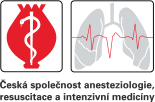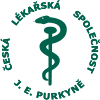Anest. intenziv. Med. 2018;29(5):269-274
Application of palliative care in intensive care medicineIntensive Care Medicine - Original Paper
- 1 Klinika anesteziologie, resuscitace a intenzivní medicíny, Lékařská fakulta, Masarykova univerzita, Fakultní nemocnice Brno
- 2 Katedra ošetřovatelství, Lékařská fakulta Masarykovy univerzity
Objective:
Palliative care has become an integral part of intensive care medicine. The goal of the study was to map the actual process of change from active intensive care to palliative care in terminal patients unable to express their will in the ICU setting, and to describe the factors influencing this process in practice.
Design:
Monocentric, retrospective analysis of documents.
Setting:
Department of Anesthesiology and Intensive Care Medicine, University Hospital.
Materials and methods: The sample included medical records of 100 patients meeting the predefined study criteria. Written records of medical and nursing documentation describing the process of changing active intensive treatment into palliative care were examined. The data were processed by the STATISTICA 12 statistic software at significance level of 5 %.
Results:
The decision to change the management objective was made within 5 days of hospitalization in 60 % of patients. In 59 % of the cases, organ support was withheld. The change of the management objective was discussed with the next of kin in 93 % of the patients, in 58 % of patients it was discussed within 5 days of hospitalization.
A multidisciplinary team meeting was held less frequently. Nurses took part in 13 % of the case discussion.
Conclusion:
Patient care changes its objectives and processes. Our department has adopted palliative care into the management of critically ill patients which contributes to further improvement of the quality of patient care. More frequent involvement of multidisciplinary teams and nurses would be beneficial.
Keywords: intensive care medicine; palliative care; treatment escalation restriction; quality of life; quality of care
Received: June 5, 2018; Accepted: September 1, 2018; Published: October 1, 2018 Show citation
References
- Pařízková R. Rozhodovací procesy a kvalita života nemocných v intenzivní péči. Dizertační práce, Karlova univerzita, Lékařská fakulta [online]. 2008 [cit. 2017-05-21]; 95. Dostupné z: https://dspace.cuni.cz/handle/20.500.11956/19212.
- Valentin A, Wilfried D, et al. Recommendation on Therapy Limitation and Therapy Discontinuation in Intensive Care Units: Consensus Paper of the Austrian Assotiations of Intensive Care Medicine. Intensive Care Med. 2008;34:771-776.
 Go to original source...
Go to original source...  Go to PubMed...
Go to PubMed... - Česká společnost anesteziologie, resuscitace a intenzivní medicíny. Konsenzuální stanovisko k poskytování paliativní péče u nemocných s nezvratným orgánovým selháním [online]. 2009 [cit. 2017-05-22] ; 8. Dostupné z: http://www.csarim.cz/storage/app/media/Doporucene%20postupy%20a%20stanoviska%20CSARIM/ks20k20poskytovani20paliativni20pece20u20nemocnych20s20nezvratnym20organovym20selhanim2009.pdf.
- Česká lékařská komora. Doporučení představenstva ČLK č.1/2010 k postupu při rozhodování o změně léčby intenzivní na léčbu paliativní u pacientů v terminálním stavu, kteří nejsou schopni vyjádřit svou vůli [online]. 2010 [cit. 2017-05-22];1-4. Dostupné z: http://www.lkcr.cz/doporuceni-predstavenstev-clk-227.html.
- Schaden E, Herczeg P, et al. The role of advance directives in end-of-life decisions in Austria: survey of intensive care physicians. BMC Medical Ethics. 2010;11:1-6.
 Go to original source...
Go to original source...  Go to PubMed...
Go to PubMed... - Weissl M, Michalsen A, et al. End of life perceptions among physicians in intensive care management by anesthesiologists in Germany. A survey about structure, current implementatation and deficits. BMC Anesthesiology. 2017;17:1-10.
 Go to original source...
Go to original source...  Go to PubMed...
Go to PubMed... - Sprung CL,Cohen SL, et al. End-of-life practices in European intensive care units: the Ethicus Study. JAMA. 2003;290:790-797.
 Go to original source...
Go to original source...  Go to PubMed...
Go to PubMed... - Zhang H, Barysauskas C, et al. Changing Outcomes for Hospitalized Cancer Patients in an Academic Medical Center. Journal of Palliative medicine. 2017;20:285-289.
 Go to original source...
Go to original source...  Go to PubMed...
Go to PubMed... - Rhodes A, Evans L E, Alhazzani W, et al. Surviving Sepsis Campaign: International Guidelines for Management of Sepsis and Septic Shock. Intensive Care Med. 2016;43:304-377.
 Go to original source...
Go to original source...  Go to PubMed...
Go to PubMed... - O'Connor M, Aranda S. Paliativní péče pro sestry všech oborů. 1. vydání. Praha: Grada Publishing a. s.; 2005.
- Pavlicová P. Paliativní péče na anesteziologicko resuscitačním oddělení z pohledu sestry. Bakalářská práce, Masarykova univerzita, Brno [online]. 2015[cit. 2017-05-22];69. Dostupné z: https://is.muni.cz/.
- Fakultní nemocnice Brno. Doporučený postup při kategorizaci rozsahu léčby a při rozhodování o změně léčby intenzivní na léčbu paliativní u klientů v terminálním stavu, kteří nejsou schopni vyjádřit svou vůli [online]. 2014 [cit. 2017-05-23]; 8. Dostupné z: http://www.fnbrno.cz/.N:\ARO\PMDV\IM\Protokoly intenzivní péče.
- Pařízková R, Černý V, et al. Omezení léčby u nemocných na pracovištích typu ARO/JIP - jednodenní národní studie. Anesteziologie a intenzivní medicína. 2006:17: 261-265.
- Friesenecker B, Fruhwald S, Hasibeder W, et al. Definitions, decision-making and documentation in end of life situations in the intensive care unit. Anasthesiol Intensivmed Notfallmed Schmerzther. 2013;48,216-223.
 Go to original source...
Go to original source...





